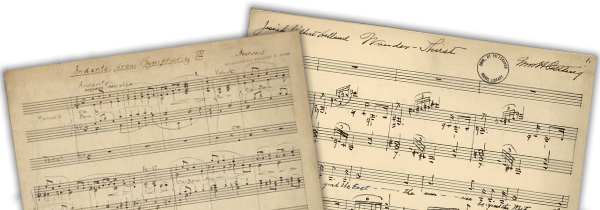“Twenty Studies for Organ in Trio Style Consisting of Chorales and Well-Known Hymn Tunes” is a collection of organ arrangements made by William H. Oetting. Manuscripts are found in the William Oetting Collection.
1. O God Our Help in Ages Past (St. Anne)
2. Praise to the Lord (Lobe den Herren)
3. Now Thank We All Our God (Nun danket)
4. The God of Abraham Praise (Leoni)
5. A Mighty Fortress Is Our God (Ein feste Burg)
6. All Glory, Laud, and Honor (St. Theodulph)
7. O Sacred Head Surrounded (Passion Chorale, by Hans Leo Hassler)
